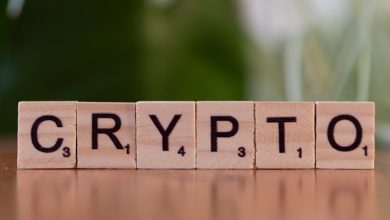The Importance of Security in Crypto: Best Practices for Beginners

- Understanding the Risks of Crypto Investing
- Securing Your Crypto Wallet: Tips for Beginners
- The Role of Two-Factor Authentication in Crypto Security
- Avoiding Common Scams in the Crypto Space
- Choosing a Secure Exchange for Your Crypto Transactions
- Protecting Your Investments: Importance of Regular Security Checks
Understanding the Risks of Crypto Investing
Investing in cryptocurrencies can be an exciting opportunity, but it also comes with its own set of risks that investors need to be aware of. Understanding these risks is crucial for beginners to make informed decisions and protect their investments.
One of the main risks of crypto investing is the high volatility of the market. Cryptocurrency prices can fluctuate wildly in a short period of time, leading to potential losses for investors. It’s important to be prepared for this volatility and not invest more money than you can afford to lose.
Another risk to consider is the security of your investments. Cryptocurrencies are stored in digital wallets, which can be vulnerable to hacking and other security breaches. Beginners should take steps to secure their wallets, such as using strong passwords and enabling two-factor authentication.
Scams and fraud are also common in the crypto space. Investors should be cautious of offers that seem too good to be true and do their due diligence before investing in any project or coin. Researching the team behind a cryptocurrency, reading reviews, and staying up to date with the latest news can help investors avoid falling victim to scams.
Lastly, regulatory risks are another factor to consider when investing in cryptocurrencies. Regulations around cryptocurrencies vary by country and are constantly evolving. Beginners should stay informed about the legal landscape in their jurisdiction to avoid any potential legal issues.
Securing Your Crypto Wallet: Tips for Beginners
When it comes to securing your crypto wallet, there are several important tips that beginners should keep in mind. By following these best practices, you can help protect your digital assets from unauthorized access and potential theft.
- Choose a reputable wallet: Selecting a trusted cryptocurrency wallet is essential for keeping your funds safe. Look for wallets that have a track record of security and positive user reviews.
- Enable two-factor authentication: Adding an extra layer of security like two-factor authentication can help prevent unauthorized access to your wallet, even if your password is compromised.
- Backup your wallet: Make sure to regularly backup your wallet’s private keys or seed phrase. This will allow you to restore your funds in case your device is lost or damaged.
- Avoid public Wi-Fi: Be cautious when accessing your wallet on public Wi-Fi networks, as they may not be secure. Opt for a trusted network or consider using a virtual private network (VPN) for added protection.
- Keep your software updated: Regularly update your wallet software to ensure that you have the latest security patches and features. Outdated software may be vulnerable to attacks.
By following these simple tips, beginners can significantly improve the security of their crypto wallets and reduce the risk of potential security breaches. Remember, protecting your digital assets is crucial in the world of cryptocurrency, so take the necessary steps to safeguard your funds.
The Role of Two-Factor Authentication in Crypto Security
Two-factor authentication (2FA) is a crucial security measure that adds an extra layer of protection to your crypto assets. By requiring users to provide two different forms of identification before accessing their accounts, 2FA significantly reduces the risk of unauthorized access.
When setting up 2FA for your crypto accounts, it is recommended to use a combination of something you know (like a password) and something you have (like a mobile device). This way, even if someone manages to obtain your password, they would still need physical access to your mobile device to complete the authentication process.
Many cryptocurrency exchanges and wallets offer 2FA as an option, and it is highly advisable to enable this feature wherever possible. It may seem like an inconvenience to go through an extra step every time you log in, but the added security it provides is well worth the effort.
Remember that cybercriminals are constantly evolving their tactics to steal cryptocurrency, so staying one step ahead with strong security measures like 2FA is essential to safeguard your digital assets.
Avoiding Common Scams in the Crypto Space
When it comes to navigating the world of cryptocurrency, it is crucial to be aware of common scams that can potentially harm your investments. By staying informed and vigilant, you can protect yourself from falling victim to fraudulent schemes.
One prevalent scam in the crypto space is phishing, where scammers attempt to steal your personal information by posing as a legitimate entity. Be cautious of unsolicited emails or messages asking for your login credentials or private keys. Always verify the source before sharing any sensitive information.
Another common scam to watch out for is fake ICOs (Initial Coin Offerings) or token sales. These fraudulent projects promise high returns on investment but ultimately disappear with investors’ funds. Before participating in any ICO, do thorough research on the project team, whitepaper, and community feedback.
Ponzi schemes are also a danger in the crypto space, where scammers promise unrealistically high returns by paying off existing investors with the money from new investors. Remember, if an investment opportunity sounds too good to be true, it probably is. Exercise caution and skepticism when approached with such schemes.
Lastly, be wary of social media scams that impersonate well-known figures in the crypto industry to promote fake giveaways or investment opportunities. Always verify the legitimacy of these claims through official channels before taking any action. Remember, trust but verify.
Choosing a Secure Exchange for Your Crypto Transactions
When choosing a secure exchange for your cryptocurrency transactions, it is essential to prioritize safety and protection of your assets. Look for exchanges that offer features such as two-factor authentication (2FA), cold storage for funds, and encryption protocols. These security measures can help safeguard your investments from hackers and cyber threats.
Additionally, consider the reputation and track record of the exchange you are considering. Research online reviews and feedback from other users to gauge the reliability and security of the platform. Opt for exchanges that have a proven history of protecting user funds and maintaining a secure trading environment.
Furthermore, be cautious of exchanges that offer unrealistic returns or incentives that seem too good to be true. Scams and fraudulent platforms often lure users in with promises of high profits, only to disappear with their funds. Stick to reputable exchanges with transparent operations and a commitment to security.
In conclusion, prioritizing security when choosing a crypto exchange is crucial for safeguarding your investments. By selecting a platform with robust security measures, a good reputation, and a focus on user protection, you can trade with confidence and peace of mind. Remember to always conduct thorough research and due diligence before entrusting any exchange with your funds.
Protecting Your Investments: Importance of Regular Security Checks
Regular security checks are crucial when it comes to protecting your investments in the world of cryptocurrency. By staying vigilant and regularly monitoring the security of your accounts and wallets, you can greatly reduce the risk of falling victim to cyber attacks and theft.
One of the best practices for beginners is to set up two-factor authentication (2FA) on all of your accounts. This adds an extra layer of security by requiring not only a password but also a second form of verification, such as a code sent to your phone.
Another important step is to keep your software up to date. Developers often release security patches to fix vulnerabilities, so by keeping your software current, you can help protect your investments from potential threats.
It’s also a good idea to use strong, unique passwords for each of your accounts. Avoid using the same password across multiple platforms, as this can make it easier for hackers to access all of your accounts if they compromise just one password.
Lastly, be wary of phishing scams and suspicious emails. Hackers often use phishing tactics to try to trick people into revealing their login credentials. Always double-check the sender’s email address and never click on links or download attachments from unknown sources.




